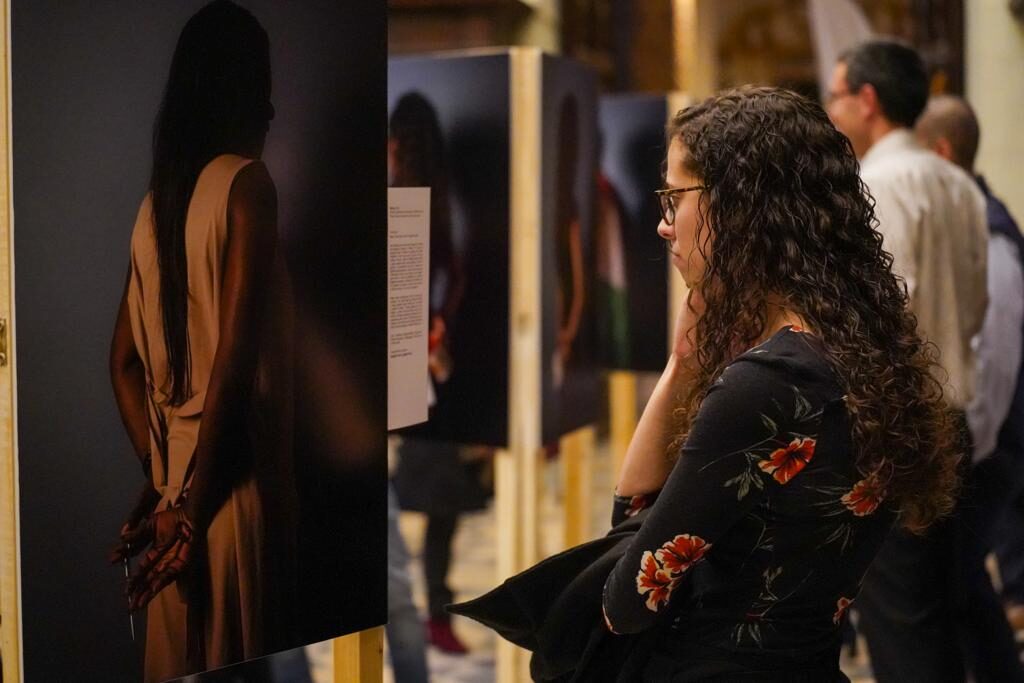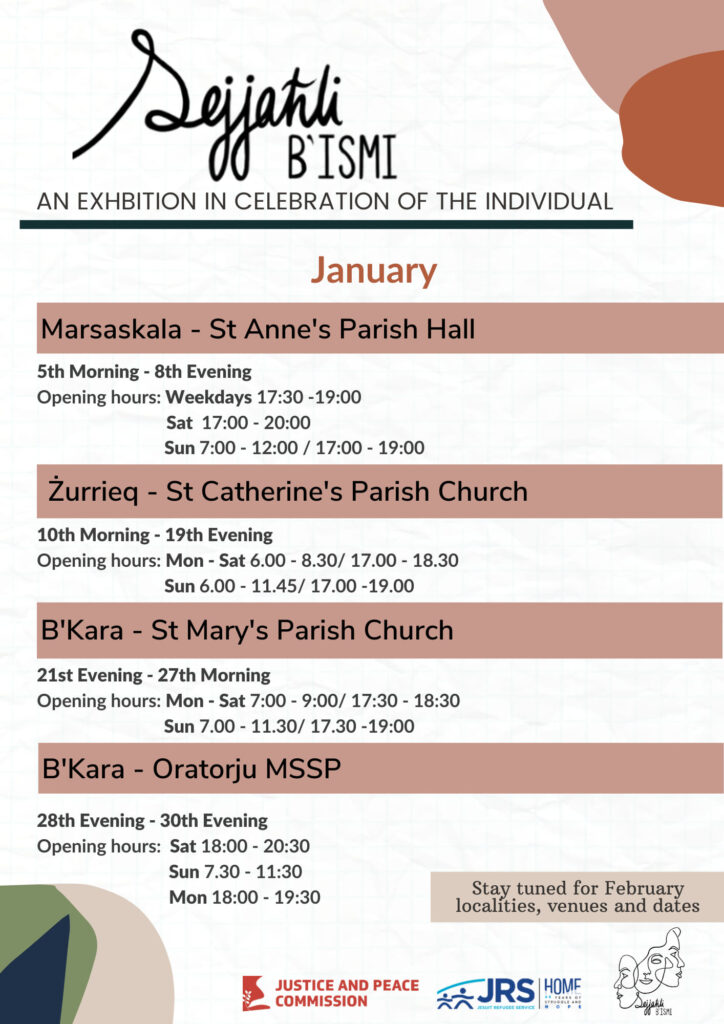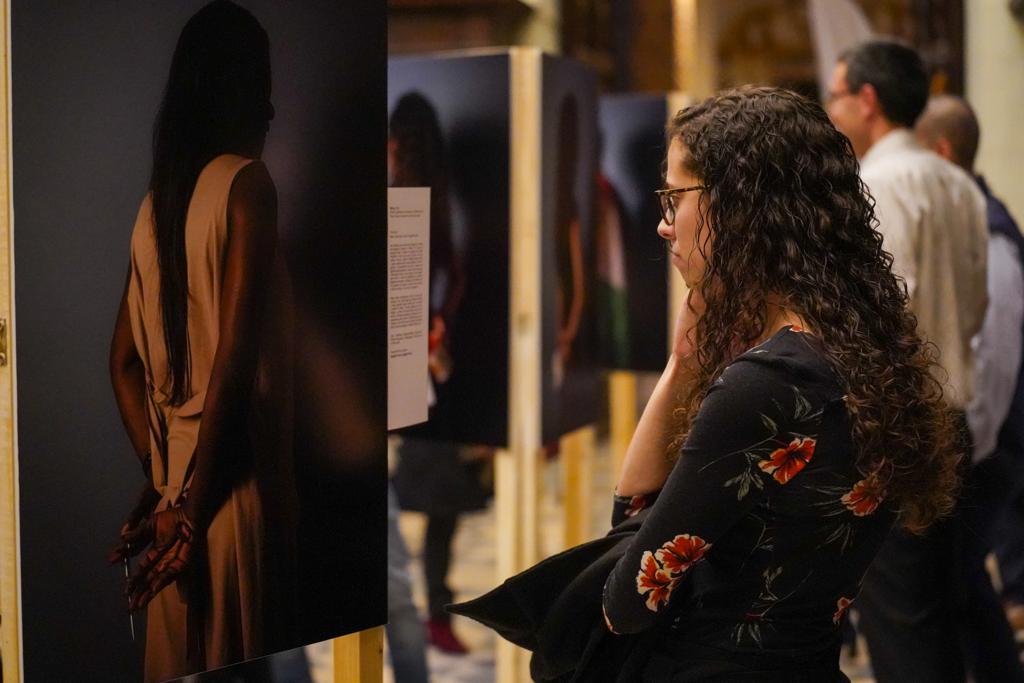
After months of hard work during which a series of dialogue sessions were held between migrants and the host community, the exhibition Sejjaħli b’Ismi was launched on Sunday 11th December. This intercultural project is the result of a collaboration between the Sejjaħli b’Ismi team, the Justice and Peace Commission and JRS (Malta) and commemorates the 20th anniversary since the first major disembarkation of asylum seekers on our shores.
During the launch of the exhibition, held in the Sacristy of St John’s Co-Cathedral of St. John in Valletta, Daniel Darmanin, the President of the Justice and Peace Commission referred to a recent speech by Pope Francis. Following his trip to Bahrain, the Pope said that dialogue is the oxygen of peace and that at the same time, there can be no dialogue without encounter. It was for this reason that the Commission fully supported this communitarian project that seeks to bring people together in a spirit of unity and reconciliation that the same Commission proposed recently in Yahad.
Katrine Camilleri, the director of JRS (Malta) also expressed her appreciation for all the work which was done in recent months on this project. She also insisted on the fact that when it comes to migration, the conversation about people must always be done with people. When this does not happen, we think we know people, even when this is not the case.
Maria Giulia Pace and Elena Pace on behalf of the team of Sejjaħli b’Ismi explained the concept behind the photographic exhibition that is on display around Malta. The journey that is being proposed is that of unpacking the concept of “identity” whilst unravelling the complexity of what makes us who we are.
The photos, words and stories of the participants that make up the exhibition help viewers go beyond what is seen at first glance or the “labels” that often stifle the individual. The three-dimensional structures of the exhibition give everyone the opportunity to walk around the individual both literally and figuratively. Those who visit the exhibition are invited to pay attention to the details that we often ignore, in order to appreciate the three-dimensionality and complexity of each individual.
Click here for more information.






